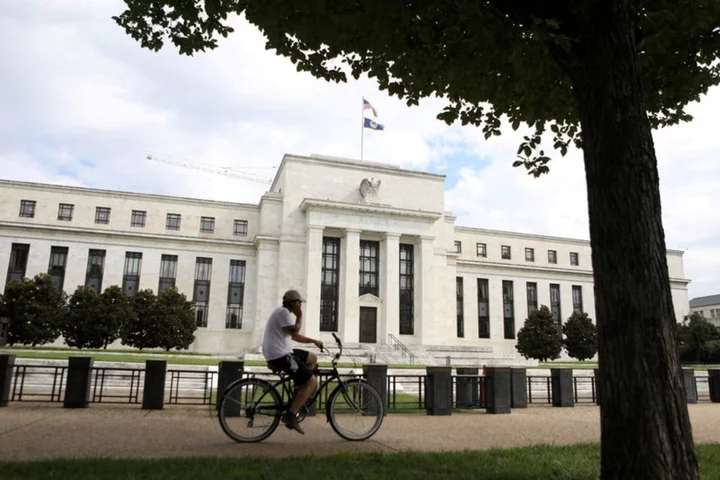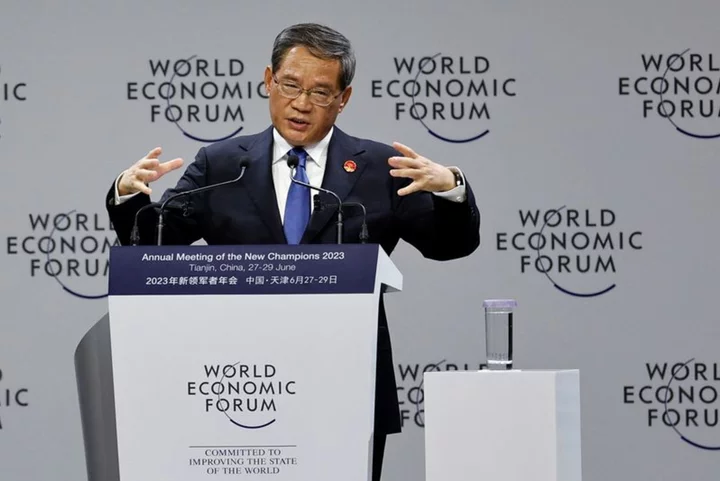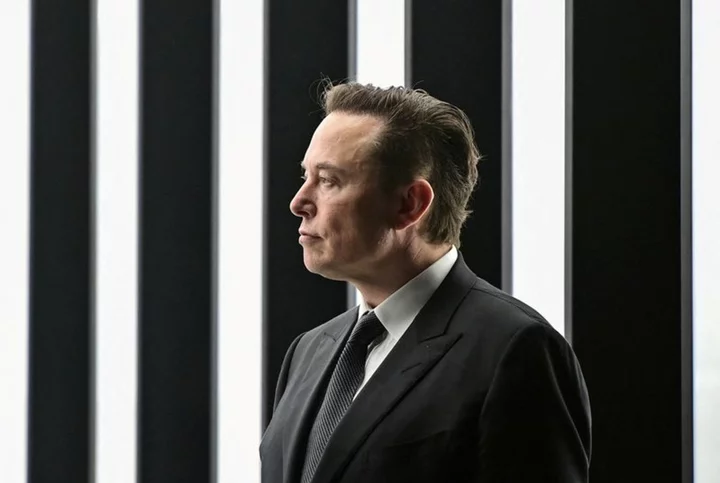By Howard Schneider
WASHINGTON The U.S. Federal Reserve held interest rates steady on Wednesday but stiffened its hawkish stance, with another rate increase projected by the end of the year and monetary policy kept significantly tighter through 2024 than previously expected.
As they did in June, Fed policymakers at the median still see the central bank's benchmark overnight interest rate peaking this year in the 5.50%-5.75% range, just a quarter of a percentage point above the current range.
But from there the Fed's updated quarterly projections show rates falling only half a percentage point in 2024 compared to the full percentage point of cuts anticipated at the meeting in June.
With the federal funds rate falling to 5.1% by the end of 2024 and 3.9% by the end of 2025, the central bank's main measure of inflation is projected to drop to 3.3% by the end of this year, to 2.5% next year and to 2.2% by the end of 2025. The Fed expects to get inflation back to its 2% target in 2026, which is a later date than some officials had thought possible.
"Inflation remains elevated," the rate-setting Federal Open Market Committee (FOMC) said in a policy statement that included projections incorporating stronger economic and job growth than prior forecasts, and keeping prospects for a "soft landing" squarely in view.
Financial markets had widely expected that the Fed would leave rates unchanged.
But investors have also been banking on significant Fed rate cuts next year, an expectation clouded by the projections showing 10 of 19 officials see the policy rate remaining above 5% through next year.
After the release of the statement and projections, bond yields moved higher in the face of a higher-for-longer monetary policy stance, with the two-year Treasury note rising to its highest level since 2007. Stocks initially weakened while the dollar erased its losses for the day against a basket of major currencies. Federal funds futures showed traders downgraded their estimates of Fed rate cuts ahead.
The new projections include a substantial markup of projections for economic growth: After expecting growth as weak as 0.4% for this year in earlier projections, the Fed now sees the economy growing 2.1% in 2023.
The unemployment rate is also seen remaining steady at around 3.8% this year and rising to just 4.1% by year's end - a vote of confidence in the possibility of containing the worst breakout of inflation since the 1980s without significant job losses.
But the projections also threaten companies and households with the possibility of even tighter credit conditions and higher borrowing costs than they have already absorbed during the Fed's aggressive two-year battle to contain inflation, embodying a philosophy of "higher for longer" into the latest projections.
In the wake of the Fed statement, economists saw central bank officials as more confident they’ll be able to quash inflation without causing broader economic pain.
“The message conveyed in their upward revision to growth and their downward revision to the unemployment rate in 2024 clearly indicate a Fed that has dialed up their expectation for a soft landing, despite higher for longer rates,” said Olu Sonola, head of US economics at Fitch Ratings, said.
The Fed’s forecasts caught some observers off guard, especially in the new view of a slower-than-thought decline in inflation pressures. Omair Sharif of forecasting firm Inflation Insights said given the Fed outlook it’s not surprising to see a hawkish shift in the monetary policy outlook, while adding that when it comes to officials’ outlook, “it’s oddly optimistic on the labor market and equally oddly pessimistic on core inflation this year.”
The Fed statement was approved unanimously after a two-day meeting that marked new Fed Governor Adriana Kugler's debut on the central bank policymaking stage.
(Reporting by Howard Schneider and Michael S. Derby; Editing by Paul Simao and Chizu Nomiyama)









